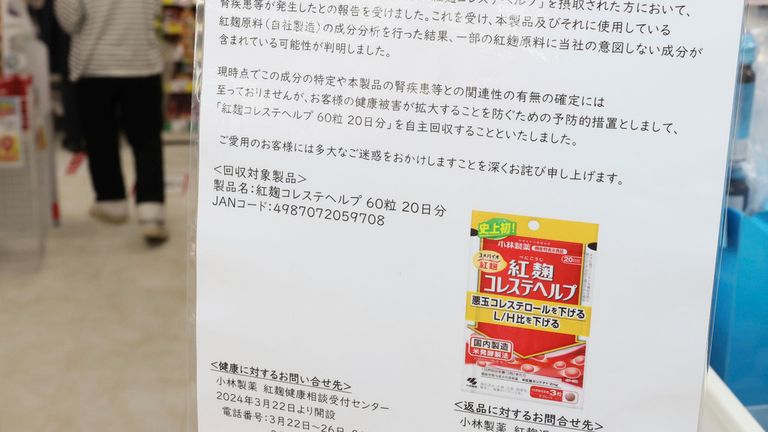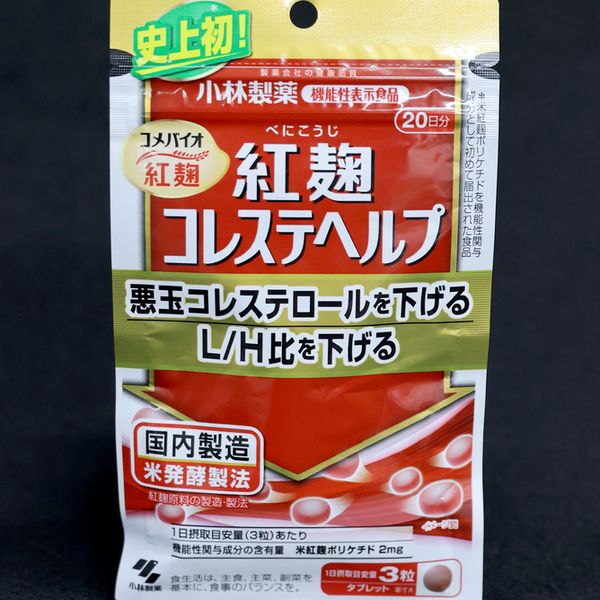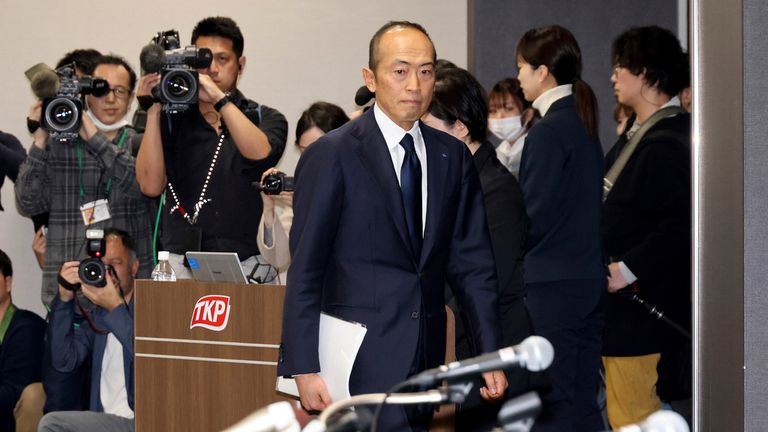Five dead and more than 100 in hospital after taking health supplements in Japan
The supplements could be bought at pharmacies without a prescription from a doctor, with the key ingredient having been used in parts of Asia since ancient times.
Saturday 30 March 2024 14:23, UK
Five people have died and more than 100 are being treated in hospital after taking Japanese health supplements that have now been recalled.
The supplements - including one aimed at helping to lower cholesterol - contain a fermented rice produce called beni koji, which is thought to have caused kidney problems in some people.
The exact cause of the deaths is still under investigation, but Japan's health ministry has warned the number of fatalities could keep rising.
The company that makes the products - Kobayashi Pharmaceutical Co - issued an apology on Friday and expressed remorse to those that have died or have been taken ill.
Company officials said a total of 114 people were being treated in hospital but a Japanese newspaper, The Mainichi Shimbun, later said this was revised to 93.
Kobayashi Pharmaceutical said its products have now been recalled, as have others that contain beni koji - including miso paste, crackers and a vinegar dressing - some of which use the mould as food colouring.
The Osaka-based company has come under increased pressure for not alerting the public quickly enough after learning of problems with some products back in January.
The company first made a public announcement about the products on 22 March.
Read more from Sky News:
45 people killed in bus crash in South Africa
Haiti gang boss will take part in talks if invited
The new tech bringing loved ones back to life through AI
The supplements could be bought at pharmacies without a prescription from a doctor.
The health ministry warned that some products may have been purchased or exported before the recall, including by tourists who may not be aware of the health risks.
Akihiro Kobayashi, president of the pharmaceutical company, also apologised for the troubles caused to the entire health food industry and the medical profession.
He said the company was working to prevent further damage and improve crisis management.
Kobayashi Pharmaceutical had been selling beni koji products for years, with a million packages sold over the past three fiscal years.
It said it produced 18.5 tons of beni koji in 2023 alone, which, The Mainichi Shimbun said was supplied to a total of 173 businesses.
Beni koji is made by mixing rice with a species of reddish-purple mould. It has been used as an ingredient in Taiwan and China since ancient times, according to the National Library of Medicine.


